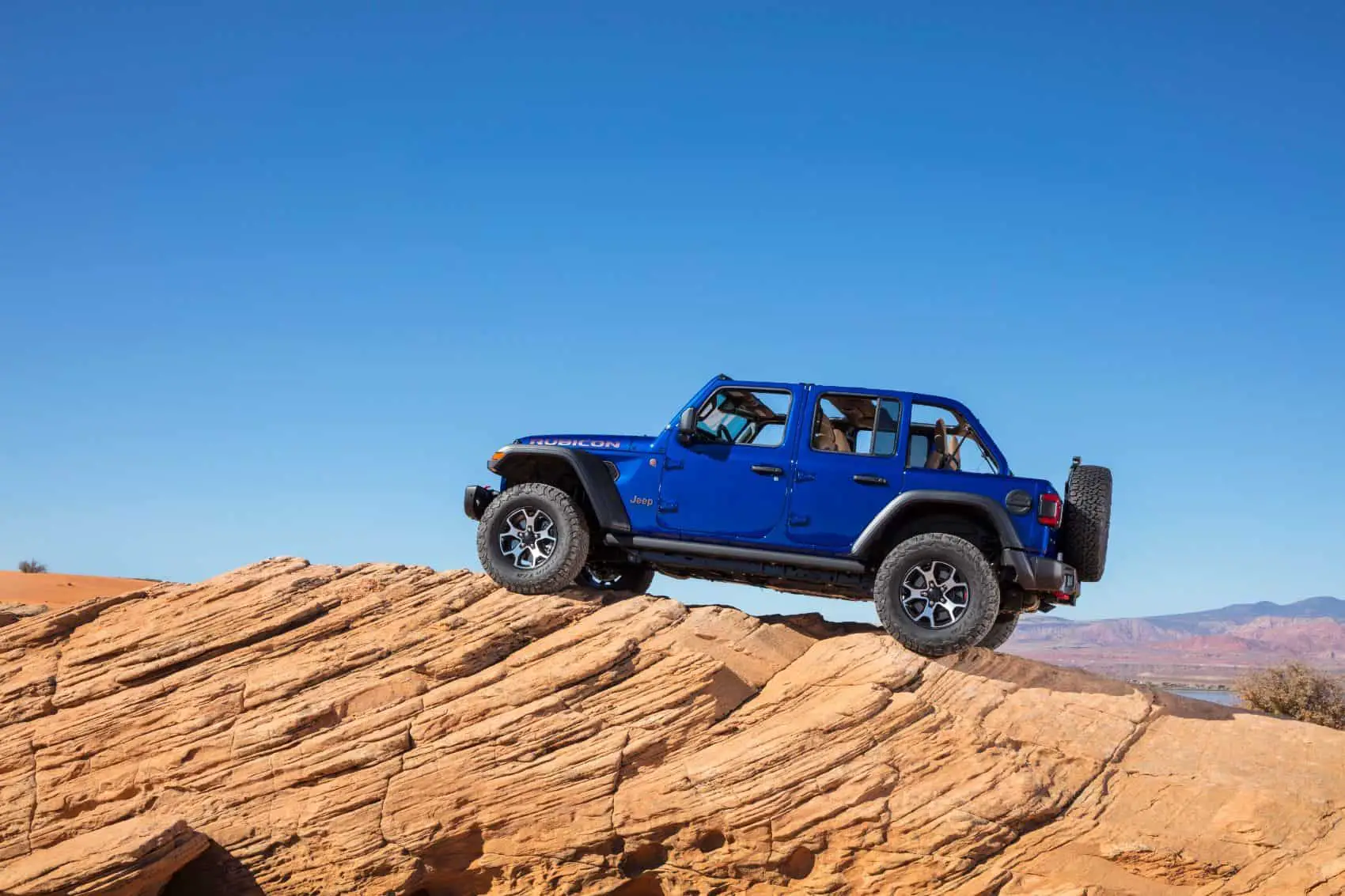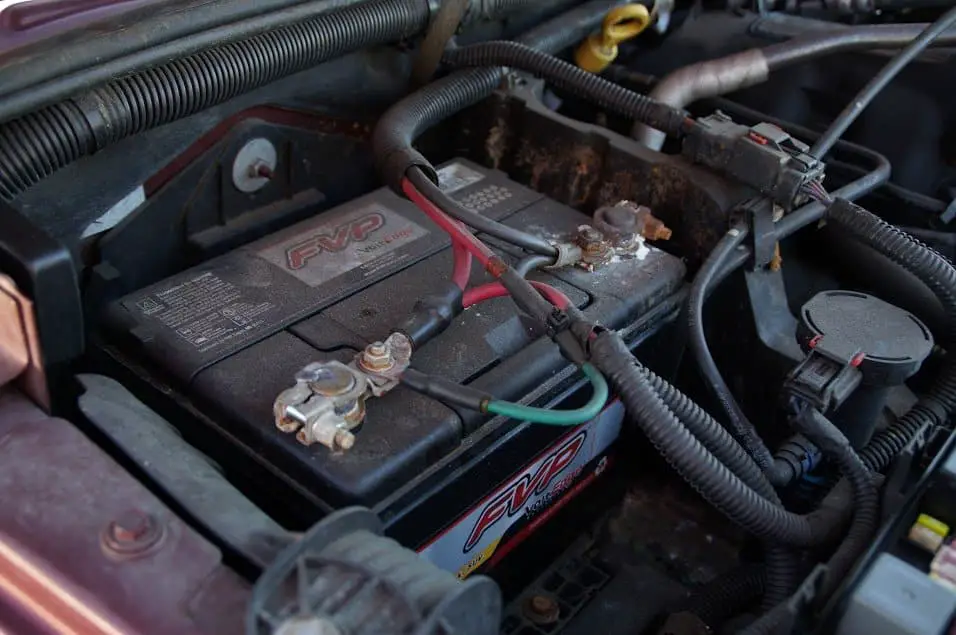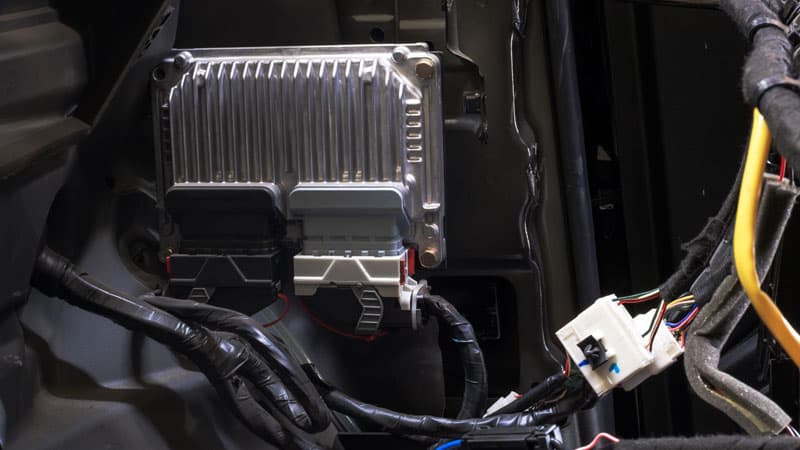A Jeep, like any other automotive has its share of mechanical failures, and a popular one is stalling after start. Your Jeep starting, then dying right away is nothing to cause panic as it’s easy to fix.
Often, a Jeep stalls if the fuel filters are clogged or old, there is a leak in the fuel pump, the fuel pump is damaged or many other reasons. In this article, I will share with you some of the reasons why your Jeep stalls, then dies right away.

6 Reasons Why Your Jeep Starts Then Dies Right Away
1) Ignition Problem
When the ignition system fails, it could be because the spark plug doesn’t spark or the spark is small and insufficient for combustion.
This leads to the car dying out. To check for ignition issues, do this; -Check the spark plugs to ensure spark plugs are not burned, shorted or old.
Clean them and install them again. If this does not work, then they may be damaged and require replacement. -Check the spark plug cables to see if there are any breakages that are preventing the plug from sparkling well. Replace the wires if you find that they are damaged or too old.
Additionally, modern Jeeps have electronic ignition systems that might require a system reset or software update from the dealership or a qualified mechanic, which could solve ignition problems without the need for physical repairs.
2) Poor Battery Connection
Your Jeep model may experience stalls when the jeep battery connections are not correctly installed. This is so because vehicles need constant electricity flow to run.
It could either be due to too much grease in the terminals of the battery deflecting energy or a bad head connection. Here is what you can do: -Check all the fittings. Ensure no dirt or grease is between them and the battery.
You can use a degreaser to clean components such as WD 40 or PB Blaster. -It could also be a bad battery or dead battery thats causing the problem.
If you need a new battery, make sure you check our guide on Wrangler Battery Sizes!
Try the battery in another vehicle without connection Jeep Wrangler problems to see if it works. If it works, then the problem could be with the cables. You can replace them if need be.

Poor battery connections can also result in low voltage issues that might not trigger a check engine light. Using a multimeter to check the battery voltage can determine if the electrical charge is sufficient.
3) A Problem With The Fuel Injection Sensor
Fuel injector of your car needs a specific amount of fuel pressure in order to work efficiently and inject fuel into the combustion chamber.
For it to do so, the sensor needs to send a signal to the ECU so it can send to the injector the right amount of fuel.
When the sensor is defective, it may send low fuel pressure or high fuel pressure which leads to either too much combustion power which causes the combustion chamber to burst, or no combustion at all. Call an automotive expert to check the fuel sensor and injectors. They will know whether to fix or clean the injectors.
Fuel sensors and injectors can also be affected by the quality of fuel used. Using fuel with higher ethanol content than the vehicle is designed to handle may lead to sensor and injector problems. Always use the grade of fuel recommended by the manufacturer.
4. Malfunctioning of Engine Control Unit (ECU)
ECU is the computer of any vehicle and like any other computer, it can bug and glitch, transform into errors which can stall your car after starting it.
All electrical components are controlled by the ECU, so, when it doesn’t work, you may experience stalling or even dying of the engine.
ECU malfunction could be because sensors like fuel sensor, speed sensor, mass airflow sensor, temperature sensor, crankshaft position sensor are not working properly, failure of fuel injection systems to send the right signal to the engine and other crucial parts.
Whatever happens, you will have to look for the error code of the engine control unit issue and fix the car’s electrical system accordingly. You need to get a code scanner, plug it to an OBDII port so you can know what is happening.
When finding the code, here is what to consider; -Each car has specific error codes. Be sure to read the repair manual or ask an expert on what the codes mean. Do not try to fix it if you don’t know what the codes mean.

In some cases, the ECU may need to be reprogrammed, which is a task that typically needs to be performed by a dealer or an automotive technician with the correct tools and access to the latest software updates.
Your jeep guide also has a detailed article on the Red Lightning Bolt Symbol in a Jeep.
5. Fuel Pump Leak
Your Jeep may turn on but immediately stall if it has a leak in the fuel pump. Fuel pump leak happens due to improper combustion as fuel won’t reach the combustion chamber.
Any weak connection to the engine or fuel tank could be the issue of fuel flow. Adjust the fuel pump leak before starting the car again. Driving a car with a fuel leak is dangerous.
Replace rubber lines of the fuel pump by removing clamps on each side of the line. Do not forget to use the fuel pump gauntlets and the right size and material of rubber tube to prevent further fuel pump problems.
Whenever your car can’t start or stalls immediately after starting, take your time and observe what the problem really is. It could be a clogged fuel filter.
It’s also worth noting that a faulty fuel pump relay can exhibit similar symptoms to a leak. A fuel pump relay that fails to provide power intermittently can cause the fuel pump to stop working sporadically, which may lead to stalling.
Fuel filters need to be replaced often as they fail due to getting too old. You should replace after a 20,000 mileage or less depending on the model. Replace by removing the plastic clips and unscrewing brackets that hold the filter of the fuel pump.
6) Defective Alarm System
A defective Jeep alarm may also cause stalling. Jeep alarms may turn the engine off when they sense the car is being stolen.
However, unless you have messed with your Jeep’s connection to the alarm system, stalling because of the alarm is rare. Try disconnecting the alarm (requires an expert), or locking and unlocking the passenger door with your factory key.
Sometimes, the issue could be as simple as a key fob battery running low, which might disrupt the communication between the key fob and the vehicle’s alarm system. Replacing the key fob battery could resolve such issues.
7) Bonus! Do you have a tuner installed?
While tuners are great, they can be a little finicky and cause issues from time to time. If you have one installed, try flashing the vehicle back to stock or calling the manufacturer to troubleshoot further.
Keep in mind that aftermarket tuners can sometimes interfere with factory settings, leading to unexpected consequences. Always ensure that any tuning is compatible with your vehicle’s specifications.
Conclusion
If you’ve checked everything we’ve listed above and your Jeep doesn’t start yet, call a professional to do a comprehensive diagnostic. Again, dont do something you are not sure about to avoid inflicting more damage to your Jeep.
Who Worked on This?

Brian
Editor
A master of organization, Brian helps keep everything running smoothly for Your Jeep Guide.
No Jeep yet but we’re working on that!

Cory
Writer
Cory loves his XJ and frequently thrashes it through the hills. He’s constantly fixing something.
“What fenders?”
Check Us Out!
